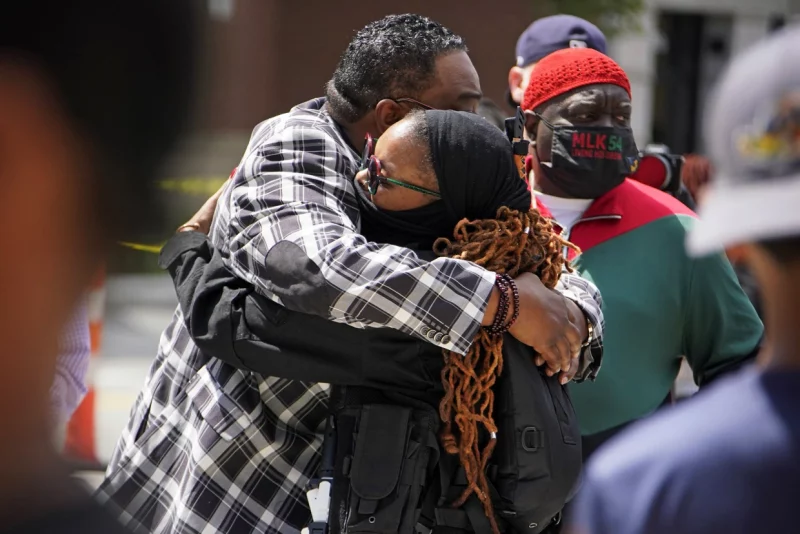Jayland Walker’s death has traumatized Black people in Akron, Ohio. Community leaders are finding ways to help.
Share
Explore Our Galleries
Breaking News!
Today's news and culture by Black and other reporters in the Black and mainstream media.
Ways to Support ABHM?
By Claretta Bellamy, NBC News
Members of the Black community are stepping up to provide emotional support after the fatal shooting death of Walker by police.

Black leaders in Akron, Ohio, are focusing on ways to help their community heal following the death of Jayland Walker, 25, an unarmed Black man shot 46 times by police last month.
While his death came as a shock to residents, those who lived in the community for decades say that the racial violence in Akron is all too familiar. The violence, paired with the community’s heightened fear of police after Walker’s brutal death, has led advocates to create health and wellness activities to help those suffering from racial trauma — which can lead to post-traumatic stress disorder, anxiety and depression, experts say.
Among those coping and finding ways to address the trauma of Walker’s death is Brian Turner, the former dean of Buchtel Community Learning Center, the high school Walker attended. Turner, whose role often involved disciplining students, said Walker was a good student who never got in trouble.
“I just know that he was a very respectful, mannerable young man when he was in the building with his friends,” he said.
After learning of Walker’s fatal shooting, Turner, 59, said he looked for solace. He joined more than 300 attendees who marched in downtown Akron during a peaceful protest organized by the NAACP. While he was unable to attend Walker’s funeral, he said, individuals in the community are expressing “a number of different things,” including anger and hurt.
Head to the source for the full story.
Unfortunately, police violence against Black Americans is not uncommon, and a recent change in Arizona law could make it even more difficult to get justice.
Get more breaking news.









Comments Are Welcome
Note: We moderate submissions in order to create a space for meaningful dialogue, a space where museum visitors – adults and youth –– can exchange informed, thoughtful, and relevant comments that add value to our exhibits.
Racial slurs, personal attacks, obscenity, profanity, and SHOUTING do not meet the above standard. Such comments are posted in the exhibit Hateful Speech. Commercial promotions, impersonations, and incoherent comments likewise fail to meet our goals, so will not be posted. Submissions longer than 120 words will be shortened.
See our full Comments Policy here.